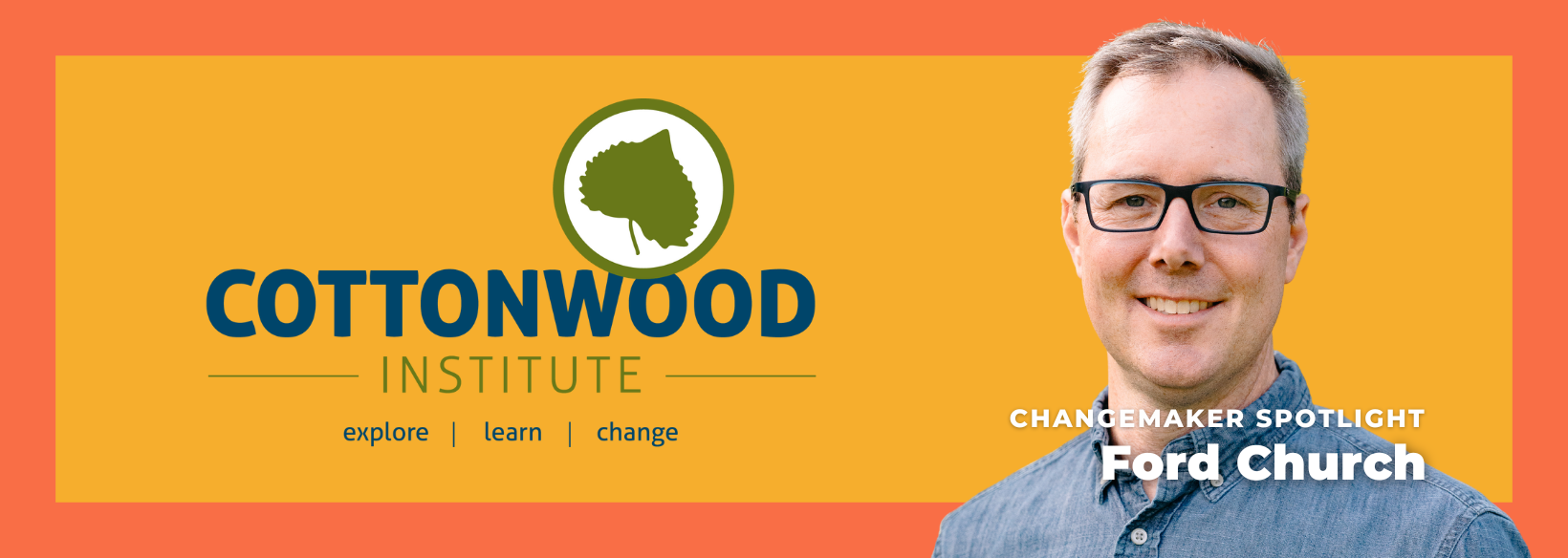
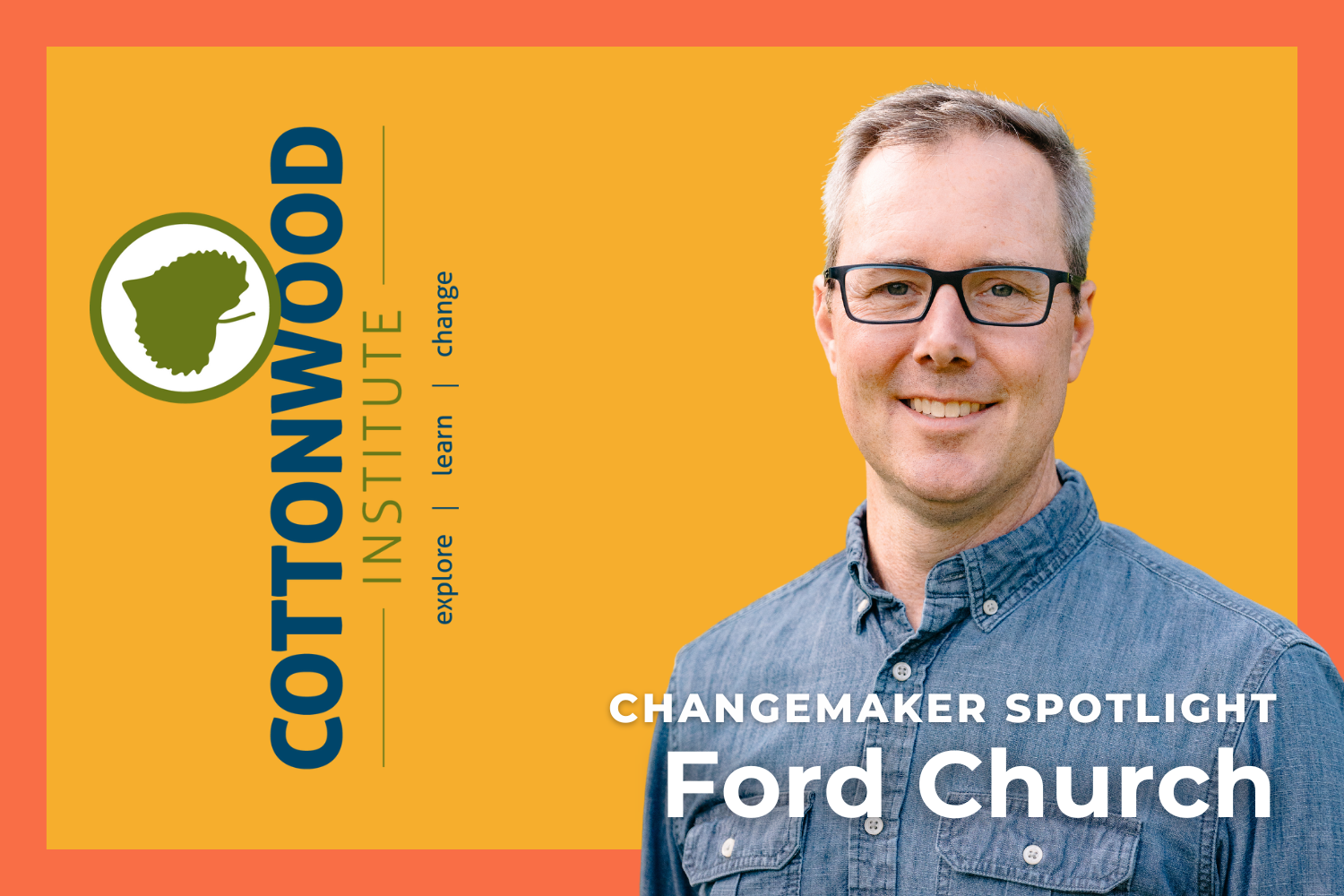
Changemaker Spotlight – Ford Church, Cottonwood Institute
Welcome to Strat Labs’ Changemaker Spotlight Series! This blog series is dedicated to showcasing the inspiring journeys of remarkable individuals who have transformed their passions into purposeful endeavors, leaving a significant impact on the world around them every single day. Join us as we delve into the heart of innovation and commitment, celebrating the extraordinary stories of those who are not just dreaming of a better future but actively shaping it in their journey as a Changemaker.
Ford Church is the Founder and Executive Director of Cottonwood Institute based in Denver, CO. Ford has 25 years of professional experience working for a variety of nonprofit environmental education organizations, for-profit outdoor companies, and public schools in Colorado. Ford received a M.A. in Adventure Education Program Management from Prescott College in 2003 where he created the Community Adventure Program as a culminating project of his thesis. He incorporated Cottonwood Institute a year later in 2004.
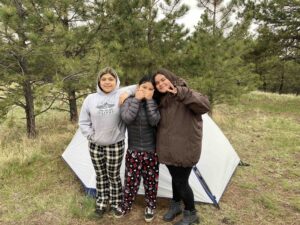
What inspired you to embark on your journey in the social impact space?
I grew up surrounded by family members who were very involved in their community and charitable as business founders, leaders, and nonprofit board members. One of my earliest memories of civic engagement was being pulled in a Radio Flyer wagon down St. Charles Avenue in New Orleans while helping my parents pick up trash because they were on the Clean City Committee.
Fast forward many years later, the next biggest influence on my social impact journey was participating in an outdoor education program in high school. Through the program, I went on canoeing trips almost every other weekend and backpacking trips to places like the Smoky Mountains and the Grand Canyon. During my senior year, the school administration cut the program and we were all crushed. However, a seed was planted and I became inspired to make this kind of education and programming accessible to more students who may not otherwise have access.
Can you describe how you and Cottonwood Institute are making a significant social impact?
There are so many students, especially today, who are feeling isolated, struggling to find community, and facing mental health challenges. Oftentimes, these youth are spending a lot of time indoors and on their screens, but are craving purpose and community. They’re also bombarded with all kinds of global and local issues that are really overwhelming. If students don’t see themselves as part of the solution in a tangible way, they psychologically disengage. This is where Cottonwood Institute steps in.
We believe that every student can be a Changemaker and we want to awaken that ability within every student. Our mission is to connect middle and high school students to nature and inspire them to protect it. We do this by blending nature connection, outdoor skills, and civic action into one program offered during the school day so we don’t compete with sports and after school programs. I founded Cottonwood Institute in 2004, but piloted the program a year before in 2003. The program started in Boulder and has now been replicated in both Denver and Aurora. Since our founding, we’ve served over 7,100 students.
What makes us unique is that our program participants also have to look at local issues in their community and then figure out what they want to do about it. We’re trying to inspire future leaders, problem solvers, and Changemakers.
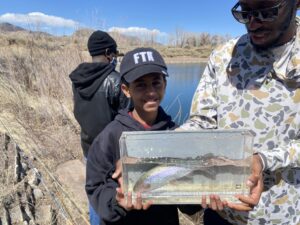
How do you define Changemaker? Can you explain what you mean or give an example?
I define a Changemaker as anyone who sees a problem and who’s inspired to do something about it.
At Cottonwood Institute, we often talk about our change theory, which is the concept of “gift” plus “issue” equals “change.” Every student has a gift, but they may or may not know what it is yet. Hopefully, our programs can help them find that. When students then apply that gift to an issue or a problem that they see in their school or their community, they can bring about positive change.
During our program, we walk students through a 10-step service learning process to address their local issue. Our goal is to inspire youth to use their voices and take action. We don’t tell students what issues they need to tackle or address, but rather they choose, design, and implement their own Action Projects.
For example, one of our first Action Projects was an article written by students called “What’s the Scoop on Dog Poop?” The students were inspired after we went on a hike with a ranger in Boulder and learned about the issue of dog owners leaving waste along the trails and its impact — that once the dog waste goes into the water stream, it can pollute the waterways. They wanted to encourage people to stop doing it. I submitted their article to Boulder Weekly, The Daily Camera, and KGNU and it got picked up by all three outlets, resulting in a huge impact! This past spring, one of the students who helped write that article reached out and now works for the Longmont Humane Society. She had to create an awareness campaign for their booth at the Earth Day Fair, and used this article again 20 years later.
What are a few things you wish someone told you when you first started and why?
Imposter syndrome is real. A lot of people have really good ideas for problems they want to solve, but hesitate and don’t act because they feel like they don’t have enough experience or don’t have all the answers. My big advice — don’t let that stop you. I was in my mid to late 20s when I originally thought about Cottonwood Institute. I had never started a business or nonprofit before, so I was not sure if I was ready to do it. I encourage people to push through those feelings because you’re never going to know everything you need to know to do something. You’re always learning.
I recommend surrounding yourself with experienced advisors who you know and trust, and commit to becoming a lifelong learner. I always remind our team that we’re not striving for perfection, but striving for excellence. We’re going to make mistakes and mistakes are fine and how we learn. Look at mistakes as learning opportunities. But the big goal is not repeating your mistakes.
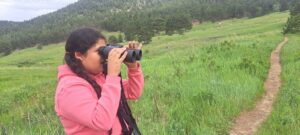
How do you approach collaboration and partnerships at Cottonwood Institute and what role do they play in achieving your goals?
We always try to look for win-win partnerships, whether it’s collaborating with our program partners or our corporate partners.
For our program partners, we look at working with schools that wouldn’t necessarily have the resources to offer this kind of program. We’re really committed to breaking down those barriers to access. While we present them with the true cost of a program, including staff time, we understand that many schools cannot pay for the full cost of our programs. My job is to underwrite the rest through our corporate sponsorships, events, and grants.
For our corporate partners, we help cultivate unique events that bring our network of donors and supporters together in order to increase the awareness of their products or services. The cash sponsorships we receive from our corporate partners are instrumental in helping to fully fund our programs.
Looking ahead, what are your aspirations and goals for the future of Cottonwood Institute and how do you plan to continue your journey as a Changemaker?
I’m focused on developing a stronger community of supporters who believe in the mission and vision of Cottonwood Institute as well as our programs rather than supporting us based on a relationship with any one person within the organization, whether it’s me, another staff member, or board member. Now that we have celebrated 20 years of service, I’m interested in developing our long-term sustainability plan.
We’re also cultivating a strong alumni community of students whose lives have been changed through our programs.
We continue to have a rock-solid team. While nonprofits historically pay way lower than the for-profit sector, we’ve been really trying to push that envelope and make our salary and benefits competitive with the for-profit sector. Of course, that means we have to raise more money. It takes amazing people and resources to deliver our high-impact programs!
 How can people get involved with Cottonwood Institute?
How can people get involved with Cottonwood Institute?
Visit our website at cottonwoodinstitute.org to learn more about our organization, check out our programs, and read our blog. I’d also be happy to chat with anyone who’s interested in getting involved and supporting our mission. We are interested in connecting with folks who are passionate about youth, education, and the environment. We’re always open to creative partnerships and collaborations!
To learn more about the impactful and important work that Cottonwood Institute is doing, or to make a donation to support their programs, visit their website at www.cottonwoodinstitute.org.
If you are interested in connecting with Ford Church to learn more about his Changemaker journey, you can contact him at ford@cottonwoodinstitute.org or connect with him on LinkedIn.
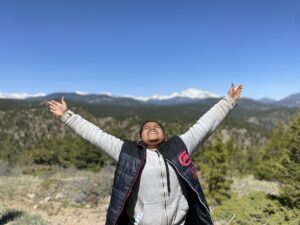 How can people get involved with Cottonwood Institute?
How can people get involved with Cottonwood Institute?